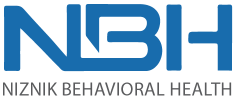Stress Awareness Day: 10 Ways to De-Stress
Stress Awareness Month is dedicated to educating the public on the effects of stress from one’s physical and mental health. Acknowledged each April, Stress Awareness Month encourages people to focus on their mental health and developing stress management skills for enriching your life. April 16th is Stress Awareness Day, which is specifically designated toward taking steps toward reducing stress and its impact on one’s physical and mental health.
What is Stress?
Stress is the body’s natural response to threats or demands for action. This psychosomatic reaction can be triggered by any number of physical or mental stimulants ranging from life-threatening crises to worry about being punctual to a job interview.
The body’s stress response, also known as the fight-or-flight response, releases hormones such as adrenaline, cortisol, and norepinephrine. These hormones are responsible for increasing the heart rate and blood pressure, heightening senses and awareness, and providing the surge of energy necessary for prompt action.
For some, stress can cause extreme and prolonged effects. Stress disorders are defined as an atypical response to physical, mental, or emotional stress. The most commonly recognized stress disorder is Post-Traumatic Stress Disorder, which can occur among survivors of traumatic events such as child abuse, sexual and/or physical assault, and combat situations. Symptoms of PTSD include hyper-vigilance, severe anxiety and paranoia, and flashbacks.
Acute Stress Disorder is also a disorder caused by stressful events, sometimes leading to the development of PTSD. The primary difference between ASD and PTSD is the duration: Acute Stress Disorder typically happens immediately following the triggering event with symptoms lasting between 3 and 30 days.
For people in recovery, stress management is vital to maintaining sobriety. Rather one suffers from a stress disorder or not, stress is a common trigger for relapse, causing one to fall back on old, harmful coping mechanisms. By learning to recognize and mitigate the causes of stress in your life, anyone can benefit from these tips for de-stressing without drugs or alcohol.
- Go for a Walk. Walking boosts endorphins, which reduces stress hormones. Just a quick 10 minute walk can clear your mind and help you re-focus.
- Practice Deep Breathing. Taking deep, controlled breaths forces your body to relax, lowering heart rate and blood pressure. The mindfulness of deep breathing exercises also helps to distract from anxious thoughts.
- Get Off of Social Media. Unplug from the constant stream of consciousness that is social media. Getting off of Facebook, Instagram, and Twitter for a while gives you time to relax and focus on yourself.
- Use Stress Relieving Apps. Cell phones aren’t all bad! There’s some great apps available for reducing anxiety and stress or distracting yourself.
- Turn Off Your Phone. Disconnecting completely for a bit shuts out all the stress triggers connected to work or other responsibilities. Give yourself an hour or so to unwind without being interrupted by a text or phone call.
- Listen to Classical Music. Classical and other soothing forms of music has been shown to lower cortisol levels in the blood, reducing blood pressure and calming one’s breathing.
- Have a Sweet Treat. A bit of chocolate or your favorite pastry boosts endorphins! Enjoying a treat, but be careful not to devolve into stress eating habits.
- Practice Mindful Muscle Relaxation. We carry stress in our shoulders, back, neck, and jaw- that’s why we experience headaches and muscular pain when we’ve been stressed for too long. Unclenching your jaw, relaxing your shoulders, and stretching your neck and back sends the signal to your brain to relax.
- Get Some Exercise. If you need to redirect some pent up energy, exercising is a great, healthy way to do it. Turn your stress into something beneficial by going for a jog or hike, following a work out video, or doing some yoga.
- Take a Nap. Sleep is great for decompressing and reducing stress. Just a 15 minute nap has been shown to improve mood and one’s ability to focus. Block out some nap time in your schedule to keep yourself from getting too stressed or fatigued.

